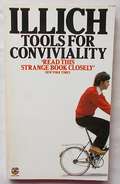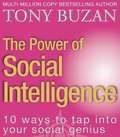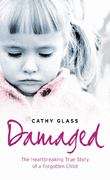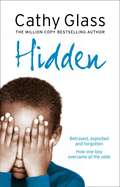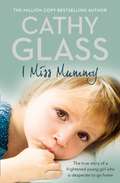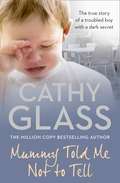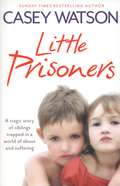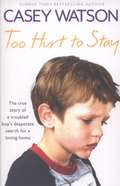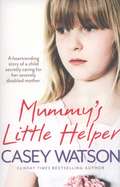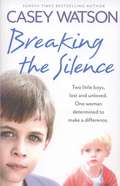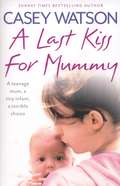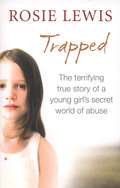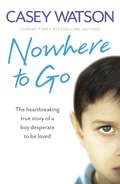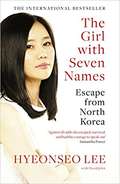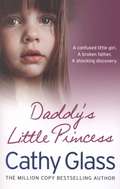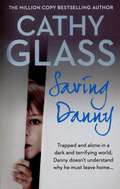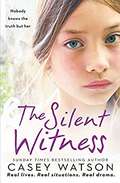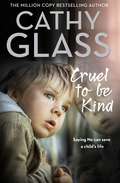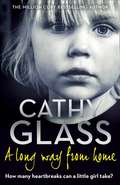- Table View
- List View
Tools for Conviviality
by Ivan IllichA work of seminal importance, this book presents Ivan Illich's penetrating analysis of the industrial mode of production which characterises our contemporary world. The conviviality for which noted social philosopher Ivan Illich is arguing is one in which the individual's personal energies are under direct personal control and in which the use of tools is responsibly limited. This book claims out attention for the urgency of its appeal, the stunning clarity of its logic and the overwhelmingly human note that it sounds.
The Living Workplace: Soul, Spirit, and Success in the 21st Century
by Ann Coombs Marion E. RaychebaThrough true-life examples and well-tested learning model, the author reveals how to access and utilize the key elements of spirituality such as wisdom, service and creativity, to ensure long-term success. This is a new approach to business.
From Stone Orchard: A Collection of Memories
by Timothy FindleyThis collection illustrates some of Findley's popular columns from Harrowsmith Magazine and a few new reflections on his feelings about Stone Orchard and his imminent departure from it.
Memories, Dreams, Reflections: An Autobiography
by Carl JungFour years before his death, Carl Gustav Jung, psychiatrist and psychologist, began writing his life story. But what started as an exercise in autobiography soon morphed into an altogether more profound undertaking. The result is an absorbing piece of self-analysis; a frank statement of faith, philosophy and principles from one of the great explorers of the human mind. Covering everything from Sigmund Freud, analytical psychology and Jungian dream interpretation to a forthright discussion of world myths and religions, including Christianity, Buddhism, and other faiths, Memories, Dreams, Reflections is a remarkable book showing a man of great depth, humility and perspicacity. Once read it is never forgotten.
The Power of Social Intelligence
by Tony BuzanPresents ways to develop skills to enable one to feel comfortable in social situations.
Damaged: The Heartbreaking True Story Of A Forgotten Child
by Cathy GlassAt the Social Services office, Cathy (an experienced foster carer) is pressured into taking Jodie as a new placement. Jodie's challenging behaviour has seen off five carers in four months. Despite her reservations, Cathy decides to accept Jodie to protect her from being put in an institution. Jodie arrives, and her first act is to soil herself, and then wipe it on her face, grinning wickedly. Jodie meets Cathy's teenage children, and greets them with a sharp kick to the shins. That night, Cathy finds Jodie covered in blood, having cut her own wrist, and smeared the blood over her face. As Jodie begins to trust Cathy her behaviour improves. Over time, with childish honesty, she reveals details of her abuse at the hands of her parents and other relatives. It becomes clear that Jodie's parents were involved in a sickening paedophile ring, with neighbours and Social Services ignoring the obvious signs. Jodie becomes increasingly withdrawn, and it's clear she needs psychiatric therapy. Cathy urges the Social Services to provide funding, but instead they decide to take Jodie away from her, and place her in a residential unit. Although the paedophile ring is investigated and brought to justice, Jodie¿s future is still up in the air. Cathy promises that she will stand by her no matter what. Her love for the abandoned Jodie is unbreakable.
Hidden: Betrayed, Exploited And Forgotten - How One Boy Overcame The Odds
by Cathy GlassFrom the Sunday Times and New York Times bestselling author comes the poignant and shocking memoir of Cathy s recent relationship with Tayo, a young boy she fosters whose good behaviour and polite manners hide a terrible past. Tayo arrives at Cathy s with only the clothes he stands up in. He has been brought to her by the police, but he is calm, polite, and very well spoken, and not at all like the children she normally fosters. The social worker gives Cathy the forms which should contain Tayo s history, but apart from his name and age, it is blank. Tayo has no past. Tayo is an 'invisible' child, kidnapped from his loving father in Nigeria and brought illegally to the UK by his drink and drugs dependent prostitute mother, where he is put to work in a sweat shop in Central London. When he sustains an injury and is no longer earning, he is cast out. When Cathy takes Tayo to school he points out a dozen different addresses where he has stayed in the last six months, often being left alone. Tayo lies, and manipulates situations to his own advantage and Cathy has to be continually on guard. Tayo s social worker searches all computer databases but there is no record of Tayo he has only attended school for 3 terms and has never seen a doctor. He and his mother have been evading the authorities by living underground . With his mother recently released from prison, Tayo is desperate to live with his father in Nigeria, but no one can track him down or even prove that he exists. "
I Miss Mummy
by Cathy GlassIn her new book, Cathy Glass, the no. 1 bestselling author of Damaged, tells the story of Alice, a young and vulnerable girl who is desperate to return home to her mother. Alice, aged four, is snatched by her mother the day she is due to arrive at Cathy's house. Drug-dependent and mentally ill, but desperate to keep hold of her daughter, Alice's mother snatches her from her parents' house and disappears. Cathy spends three anxious days worrying about her whereabouts before Alice is found safe, but traumatised. Alice is like a little doll, so young and vulnerable, and she immediately finds her place in the heart of Cathy's family. She talks openly about her mummy, who she dearly loves, and how happy she was living with her maternal grandparents before she was put into care. Alice has clearly been very well looked after and Cathy can't understand why she couldn't stay with her grandparents. It emerges that Alice's grandparents are considered too old (they are in their early sixties) and that the plan is that Alice will stay with Cathy for a month before moving to live with her father and his new wife. The grandparents are distraught Alice has never known her father, and her grandparents claim he is a violent drug dealer. Desperate to help Alice find the happy home she deserves, Cathy's parenting skills are tested in many new ways. Finally questions are asked about Alice's father suitability, and his true colours begin to emerge.
Cut: The True Story of an Abandoned, Abused Little Girl Who Was Desperate to Be Part of a Family
by Cathy GlassDawn was the first girl Cathy Glass ever fostered. A sweet and seemingly well balanced girl, Dawn's outward appearance masked a traumatic childhood so awful, that even she could not remember it. During the first night, Cathy awoke to see Dawn looming above Cathy's baby's cot, her eyes staring and blank. She sleepwalks--which Cathy learns is often a manifestation in disturbed children. It becomes a regular and frightening occurrence, and Cathy is horrified to find Dawn lighting a match whilst mumbling "It's not my fault" in her sleep one night. Cathy discovers Dawn is playing truant from school, and struggling to make friends. More worryingly she finds her room empty one night, and her pillow covered in blood. Dawn has been self-harming in order to release the pain of her past. When Dawn attempts suicide, Cathy realises that she needs more help than she can give. Dawn's mother eventually confides in her that Dawn was sent away to relatives in Ireland between the ages of 5 and 9, and came back very disturbed. She also sheds light on the reason for Dawn's fascination with matches and Cathy's baby. *SPOILER ALERT*SPOILER INFO FOLLOWS* Eventually Dawn is placed in a psychiatric home for children, and five years later she gets in touch with Cathy. She has been reconciled with her mother and is now training to become a teacher.
Mummy Told Me Not to Tell: The True Story of a Troubled Boy with a Dark Secret
by Cathy GlassReece is the last of six siblings to be fostered. Having been in care for four months his aggressive and disruptive behaviour has seen him passed from carer to carer. Although only 7, he has been excluded from school, and bites people so often that his mother calls him 'Sharky'. Cathy wants to find the answers for Reece's distressing behaviour, but he has been sworn to secrecy by his mother, and will not tell them anything. As the social worker prepares for the final hearing, he finds five different files on Reece's family, and is incredulous that he had not been removed from them as a baby. When the darkest of family secrets is revealed to Cathy, Reece's behaviour suddenly starts to make sense, and together they can begin to rebuild his life.
Little Prisoners: A Tragic Story of Siblings Trapped in a World of Abuse and Suffering
by Casey Watson<P>From the Sunday Times bestselling author comes a harrowing and moving memoir about two innocent and frightened unfosterable children who do not know what it means to be loved. This is the third book in the series. <P>The shock that strikes Casey and her family when Ashton and Olivia arrive is immeasurable. <P>Two dirty, frightened little waifs stand before them, huge eyes staring around their new surroundings. Ashton 9, Olivia 6, have the same urchin look; hair running wild with head lice, filthy nails and skin covered in scabs. And the smell is horrific. <P>The eldest two children of a group of five siblings, Casey had only been told they were coming two days earlier. But it was an emergency, temporary placement, and they were only due to stay a couple of weeks. <P> Casey is desperate to help these poor, lost children, who have been taken away from their family because they were considered at risk, but before she can even start to understand the horrific things that have happened in the past, she has to teach them the most basic of behaviours. <P> Ashton and Olivia have no barriers and no sense of what s right and wrong her challenges begin with the toilet and eating habits. The weeks roll into months and the months roll on, but bit by bit the children are starting to feel like they truly belong to a family, for the first time. <P>With this new found security and love, gradually they start to reveal what really happened to them and their siblings at home, and slowly Casey can help them start to rebuild their young lives. " <P><b>A New York Times Bestseller</b>
Too Hurt to Stay: The True Story of a Troubled Boy's Desperate Search for a Loving Home
by Casey WatsonEight-year-old Spencer takes himself to social services and demands to be taken into care.Casey is determined to try and understand what Spencer is going through and help him find the loving home he is so desperately searching for.
The Night the Angels Came
by Cathy GlassEight year old Michael is part of a family of two, but with his beloved father given only months to live and his mother having died when he was a toddler, he could soon become an orphan. Will Cathy's own young family be able to handle a child in mourning? To Cathy's surprise, her children insist that this boy deserves to be as happy as they are, prompting Cathy to welcome Michael into her home. A cheerful and carefree new member of the family, Michael devotedly prays every night, believing that when the time is right, angels will come and take his Daddy to be with his Mummy in heaven. However, incredibly, in the weeks that pass, the bond between Cathy's family, Michael and his kind and loving father Patrick grows. Even more promising, Patrick is looking healthier than he's done in weeks. But just as they are settling into a routine of blissful normality, an unexpected and disastrous event shatters the happy group, shaking Cathy to the core. Cathy can only hope that her family and Michael's admirable faith will keep him strong enough to rebuild his life.
Mummy's Little Helper
by Casey WatsonThe fifth book from bestselling author and specialist foster carer Casey Watson. A recent census shows that there are at least 175,000 child carers in the UK, 13,000 of whom care for more than 50 hours a week. Many remain invisible to a system that would otherwise help them. Abigail is one of those children. This is her story. Ten-year-old Abigail has never known her father. Her mother, Sarah, has multiple sclerosis, and Abigail has been her carer since she was a toddler shopping, cooking, cleaning and attending to her personal needs. When Sarah is rushed to hospital, suddenly this comes to the attention of the social services, and Abigail has nowhere to go. Though she doesn't fit the usual profile of a child that specialist foster carers Casey and Mike Watson would take on, they are happy to step in and look after Abigail. It s an emergency, after all and all that s needed is a loving temporary home, while social services look into how to support the family so that they can be reunited. But it soon becomes clear that this isn't going to happen. Sarah s MS is now at a very advanced stage, and the doctors are certain that there will no longer be periods of remission. Abigail's emotional state starts to spiral out of control as she struggles to let go of the burden of responsibilities she has carried for so long. Sarah and Abigail insist that they do not need help, but with no other family to contact, social services are left with no choice but to find long-term care for Abigail, against their wishes. But Casey never gives up on a child in need, and she knows there must be another solution "
Breaking the Silence
by Casey WatsonThis is the sixth title in the series. The Watsons are astonished when they answer their front door to find their case worker with a small boy on the doorstep. Jenson is just nine years old. He was removed from his home thirty minutes earlier when it was discovered his mother had left him at home while she went on holiday with her boyfriend. A couple of weeks later Casey is in for a second shock when she is asked to take a second nine-year-old boy, Georgie. Georgie is autistic and has been in a children’s home since he was a toddler. The home is closing and social services need somewhere temporary for him to stay. With her own grown up son, Kieron, having Asperger’s (a mild form of autism), Casey knows this is one child she cannot say no to. The relationship between Jenson and Georgie is difficult from the outset. Jenson is rebellious and full of attitude and he kicks off at anything, constantly winding Georgie up. Georgie doesn’t cope well with change and is soon in a permanent state of stress. Despite Casey’s best efforts, her innate love for the children is being tested and she begins to question if she can handle Jenson’s cruelty. But overtime it becomes clear that the boys have formed an unlikely bond. Could this be the solution to all of their troubles?
A Last Kiss for Mummy: A Teenage Mum, A Tiny Infant, A Terrible Choice
by Casey WatsonAt fourteen, Emma is just a child herself - and one who's never been properly mothered. She has been in foster care several times already and when she discovered she was pregnant, and refused to have an abortion, her mother threw her out of the house. Casey and her family instantly form a strong bond with Emma's baby Roman, but dealing with Emma's behaviour and constant lack of responsibility is a far tougher challenge. And before long Casey finds she's doing something she never thought she would - covering up for Emma's shortcomings as she allows her personal involvement to colour her judgement. But the more Casey gets to know Emma the more she's convinced that with the right help and guidance this lonely and unsupported girl can become a good mother to her gorgeous little boy. That's what makes it even harder when Casey and her family have to make a stark choice: to hold on to Emma or look after Roman; to help a teenage girl desperate to turn her life around, or offer an innocent baby a safe home and much-needed good start in life.
Trapped: The Terrifying True Story of a Young Girl's Secret World of Abuse
by Rosie LewisLocked for nine years in a secret world of severe abuse, as Phoebe opens up about her horrific past, her foster carer begins to suspect that Phoebe may not be suffering from autism at all.
Nowhere to Go
by Casey WatsonFoster carer Casey Watson shares the shocking true story of Tyler, an abused eleven-year-old who, after stabbing his step-mother, had nowhere else to go.
The Girl With Seven Names
by Hyeonseo LeeAn extraordinary insight into life under one of the worldâe(tm)s most ruthless and secretive dictatorships âe" and the story of one womanâe(tm)s terrifying struggle to avoid capture/repatriation and guide her family to freedom. As a child growing up in North Korea, Hyeonseo Lee was one of millions trapped by a secretive and brutal communist regime. Her home on the border with China gave her some exposure to the world beyond the confines of the Hermit Kingdom and, as the famine of the 1990s struck, she began to wonder, question and to realise that she had been brainwashed her entire life. Given the repression, poverty and starvation she witnessed surely her country could not be, as she had been told âeoethe best on the planetâe ? Aged seventeen, she decided to escape North Korea. She could not have imagined that it would be twelve years before she was reunited with her family. She could not return, since rumours of her escape were spreading, and she and her family could incur the punishments of the government authorities âe" involving imprisonment, torture, and possible public execution. Hyeonseo instead remained in China and rapidly learned Chinese in an effort to adapt and survive. Twelve years and two lifetimes later, she would return to the North Korean border in a daring mission to spirit her mother and brother to South Korea, on one of the most arduous, costly and dangerous journeys imaginable. This is the unique story not only of Hyeonseoâe(tm)s escape from the darkness into the light, but also of her coming of age, education and the resolve she found to rebuild her life âe" not once, but twice âe" first in China, then in South Korea. Strong, brave and eloquent, this memoir is a triumph of her remarkable spirit.
Daddy's Little Princess
by Cathy GlassLittle Beth, aged 7, had been brought up by her father after her mother left when she was a toddler. But when he's suddenly admitted to hospital with psychiatric problems Beth is taken into care. Beth is a sweet-natured child who appears to have been well looked after. But it isn't long before Cathy begins to have concerns that the relationship between Beth and her father is not as it should be. They clearly love each other very much and Derek spoils his daughter, treating her like a princess, but there is something bothering Cathy, something she can't quite put her finger on. But, despite Cathy flagging her concerns to the social worker Jessie, no action is taken. Until Jessie accompanies Beth to the hospital to see her father. . . Then, suddenly, everything changes. All contact is stopped and Cathy is left to help pick up the pieces as poor Beth struggles to understand what her daddy has done wrong.
Saving Danny
by Cathy GlassDanny was petrified and clung to me in desperation as I carried him to my car. Trapped in his own dark world, he couldn't understand why his parents no longer loved or wanted him, and were sending him away. While Danny's parents have everything they could wish for in material terms, they are unable to care for their only child. This is where Cathy comes in. On a cold dark evening Danny finds a place in her home where he can be himself; away from his parents' impatience and frustration. Often in his own little world, six-year-old Danny finds it difficult to communicate, finding solace in his best friend and confidant George - his rabbit. Cathy quickly becomes aware of his obsessively meticulous behaviour in addition to his love of patterns, he sees them everywhere and creates them at any opportunity - in his play and also with his food. She realises that patience is the key to looking after Danny as well as her well-tried strategies for managing children's behaviour. With his father refusing to cooperate, it becomes increasingly likely that Danny will be living with Cathy permanently until she gets an opportunity to speak her piece.
The Silent Witness
by Casey Watson'I'm so sorry, Casey,' my link worker John said, sounding weary. 'I know this is probably the worst time I could ring you, but we desperately need someone to take a child tonight. ' It's the night before Christmas when Casey and Mike get the call. A twelve year old girl, stuck between a rock and a hard place. Her father is on a ventilator, fighting for his life, while her mother is currently on remand in prison. Despite claiming she attacked him in self-defence, she's been charged with his attempted murder. The girl is called Bella, and she's refusing to say anything. The trouble is that she is also the only witness. . .
Girl Alone
by Cathy GlassAged nine Joss came home from school to discover her father's suicide. She's never got over it. This is the true story of Joss, 13 who is angry and out of control. At the age of nine, Joss finds her father s dead body. He has committed suicide. Then more recently her mother remarries and Joss bitterly resents her step-father who abuses her mentally and physically. Cathy takes Joss under her wing but will she ever be able to get through to the warm-hearted girl she sees glimpses off underneath the vehement outbreaks of anger that dominate the house and will Cathy be able to build up Joss ' trust so she can learn the full truth of the terrible situation.
Cruel To Be Kind
by Cathy GlassCruel To Be Kind is the true story of Max, aged 6. He is fostered by Cathy while his mother is in hospital with complications from type 2 diabetes. Cruel To Be Kind is the true story of Max, aged 6. He is fostered by Cathy while his mother is in hospital with complications from type 2 diabetes. Fostering Max gets off to a bad start when his mother, Caz, complains and threatens Cathy even before Max has moved in. Cathy and her family are shocked when they first meet Max. But his social worker isn't the only one in denial; his whole family are too.
A Long Way from Home
by Cathy GlassThe true story of 2 year-old Anna, abandoned by her natural parents, left alone in a neglected orphanage. Elaine and Ian had travelled half way round the world to adopt little Anna. She couldn’t have been more wanted, loved and cherished. So why was she now in foster care and living with me? It didn’t make sense. Until I learned what had happened. … Dressed only in nappies and ragged T-shirts the children were incarcerated in their cots. Their large eyes stared out blankly from emaciated faces. Some were obviously disabled, others not, but all were badly undernourished. Flies circled around the broken ceiling fans and buzzed against the grids covering the windows. The only toys were a few balls and a handful of building bricks, but no child played with them. The silence was deafening and unnatural. Not one of the thirty or so infants cried, let alone spoke.
